We ask you, urgently: don't scroll past this
Dear readers, Catholic Online was de-platformed by Shopify for our pro-life beliefs. They shut down our Catholic Online, Catholic Online School, Prayer Candles, and Catholic Online Learning Resources essential faith tools serving over 1.4 million students and millions of families worldwide. Our founders, now in their 70's, just gave their entire life savings to protect this mission. But fewer than 2% of readers donate. If everyone gave just $5, the cost of a coffee, we could rebuild stronger and keep Catholic education free for all. Stand with us in faith. Thank you.Help Now >
A Caribbean island is being devoured by plastic trash, and nobody knows what to do
FREE Catholic Classes
In a series of shocking images, a Honduran island is besieged by plastic pollution, and nobody is sure what to do about the problem.
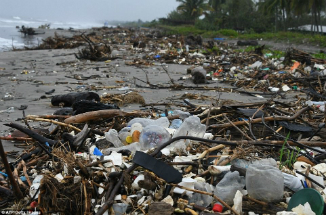
The beaches of Roatan, Honduras are covered with trash following the rainy season.
LOS ANGELES, CA (California Network) - An idyllic Caribbean island is besieged by plastic, and nobody knows what to do about the disaster.
The Honduran island of Roatan is a gem in the Caribbean, but presently it is marred by patches of plastic flotsam. The plastic is destroying the Cayos Cochinos Marine Reserve by marring its beauty and killing large numbers of animals.
The rubbish patches are also washing ashore and polluting beaches. Spots where tourists once vacationed, now look like garbage dumps.It's thought that recent heavy storms have washed large quantities of plastic rubbish from nearby Guatemala into the sea. Floods sweep the streets of many Guatemalan towns and villages during the rainy seasons, carrying plastic waste into rivers and eventually into the ocean. Currents cause the plastic to accumulate in patches.
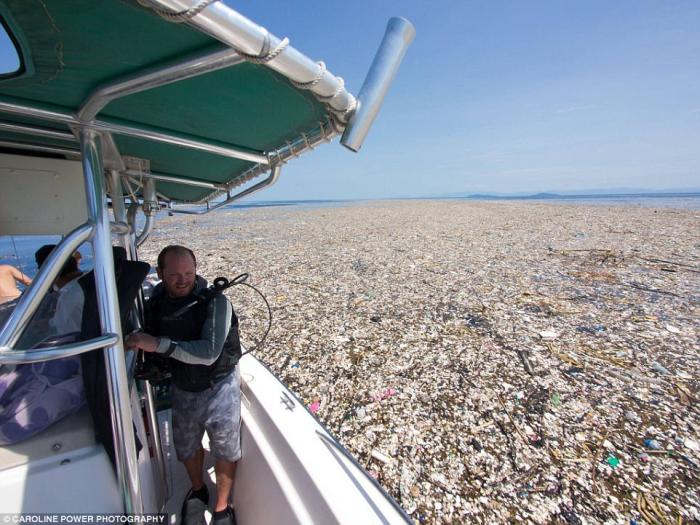
A diver looks with concern at the patch of plastic surrounding his boat. Imagine planning a vacation getaway only to see it turn into a dump.
Plastic waste has been discovered in even the most remote waters of the planet. Garbage patches the size of entire states have been identified in both the North and South Pacific. It's believed similar patches must exist in all the world's oceans.
Sealife is often confused by plastic, which can flash with bright colors causing predators to mistake the shiny bits for food. Animals that ingest the plastic eventually fill their stomachs with the debris which they cannot digest or pass out of their gut. The accumulation causes them to die painfully from starvation. Other dangers include netting, fishing line, and other kinds of rubbish which ensnare creatures, causing them to drown or making it impossible for them to catch food.
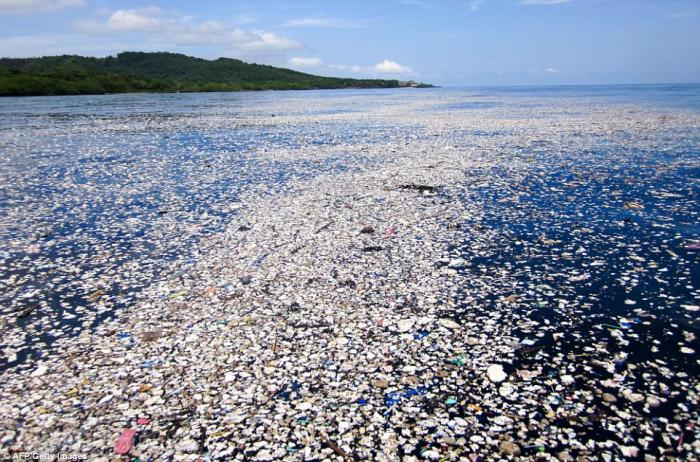
Plastic garbage wafts around Roatan, killing wildlife and ruining the natural beauty of the coast.
Estimates hold that about 90 percent of seabirds have ingested some kind of plastic.
Modern plastics have existed for about 150 years and became common after World War II. In less than a century of modern production, humans have inundated every corner of the world with plastic garbage, which can take hundreds to a thousand of years to degrade. FIshing line can take up to 600 years to degrade. Styrofoam never degrades.
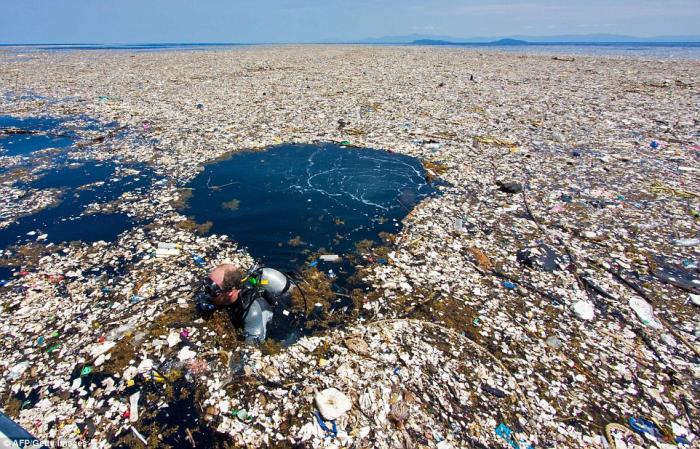
The garbage patches span for miles and are growing.
Until we develop new materials and make cleanup and recycling a uniform, global priority, plastic will accumulate in our environment.
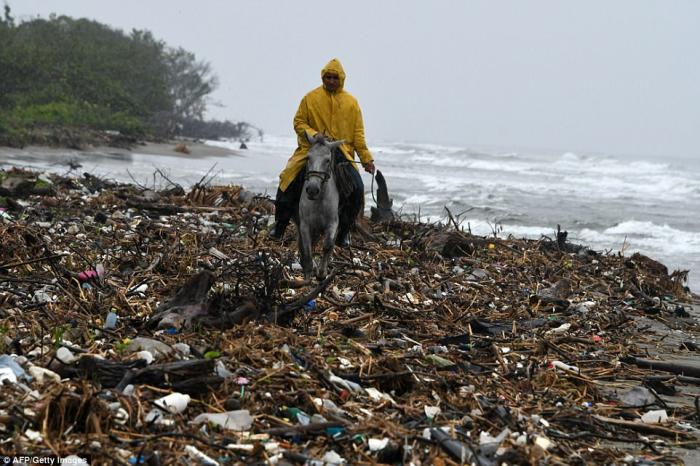
A man rides his horse on the beach, an experience marred by the incredible quantities of rubbish.
Support FREE Catholic Education
---
'Help Give every Student and Teacher FREE resources for a world-class Moral Catholic Education'
Copyright 2021 - Distributed by Catholic Online
Join the Movement
When you sign up below, you don't just join an email list - you're joining an entire movement for Free world class Catholic education.
Our Important Lenten Message - Please Watch
- Easter / Lent
- 5 Lenten Prayers
- Ash Wednesday
- 7 Morning Prayers
- Mysteries of the Rosary
- Litany of the Bl. Virgin Mary
- Popular Saints
- Popular Prayers
- Female Saints
- Saint Feast Days by Month
- Stations of the Cross
- St. Francis of Assisi
- St. Michael the Archangel
- The Apostles' Creed
- Unfailing Prayer to St. Anthony
- Pray the Rosary
![]()
Copyright 2026 Catholic Online. All materials contained on this site, whether written, audible or visual are the exclusive property of Catholic Online and are protected under U.S. and International copyright laws, © Copyright 2026 Catholic Online. Any unauthorized use, without prior written consent of Catholic Online is strictly forbidden and prohibited.
Catholic Online is a Project of Your Catholic Voice Foundation, a Not-for-Profit Corporation. Your Catholic Voice Foundation has been granted a recognition of tax exemption under Section 501(c)(3) of the Internal Revenue Code. Federal Tax Identification Number: 81-0596847. Your gift is tax-deductible as allowed by law.








